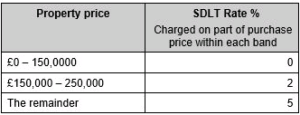Maltese legislation combines features of both Common Law and Civil Law, which adds to its appeal, to individuals from countries operating either of these legal systems.
In order to attract not only local, but also foreign clients, trusts and private foundations were introduced, in 2004 and 2007 respectively, as legal vehicles available in Malta.
Trusts and foundations are recognised as flexible vehicles for the holding of many types of asset.
What is a Trust and What is a Foundation?
Maltese Trusts
In 2004, the Trust and Trustees Act was implemented as the first written law regulating domestic trusts in Malta.
A trust is a legally binding arrangement whereby a person (the settlor) transfers asset to another person (the trustee) who takes legal title to the trust assets. The trustee holds the trust assets for the benefit of other persons (the beneficiaries, which may include the settlor), or for a specified purpose.
There are many forms of trust that have been developed over time, some of the most common forms are:
- Accumulation and maintenance trusts
- Discretionary trusts
- Fixed interest in possession trusts
- Revocable trusts
Maltese Foundations
In 2007, Malta enacted specific legislation regarding foundations. Subsequent legislation was introduced, regulating the taxation of foundations, and this further enhances Malta as a jurisdiction for international private asset planning. Foundations have been described as the civil law alternative to trusts.
The main difference between trusts and foundations is that whereas, in the case of a trust, the settlor settles assets to a trustee to hold for the benefit of the beneficiaries, a foundation entails the creation of an entity with separate legal personality distinct from the founders, the administrators and the beneficiaries.
The legislation introduced registration as a pre-condition to gaining recognition as a separate legal personality, whilst at the same time acting to safeguard the privacy of each private foundation. This is due to the fact that any documents in the Registrar’s possession are not available to third parties, without the prior written consent of the administrators, the supervisory council, if any, or the Court, and only when satisfied that such third parties have a legitimate interest to see this information.
Why Establish a Trust or Foundation?
There are numerous reasons why a trust/foundation may be of benefit, which apply to a trust and private foundation established in Malta:
- Confidentiality: the foundation deed states the foundation’s name, its registered address, a description of the initial endowment with which it was formed, and its purposes and objects.
On the settlement of assets into a trust, those assets cease to form part of the estate of the settlor. The legal title passes to the trustee, whilst the rights to future enjoyment are passed to the beneficiaries.
- Asset protection: if a home country is not politically or economically stable, a trust/foundation can be established overseas and assets transferred into it (professional advice should always be taken in the home country, prior to any transfer taking place).
- Securitisation vehicle: Maltese law allows for the use of a foundation in place of a trust, as an appropriate vehicle for the securitisation of debt.
- Tax benefit: A Malta trust or foundation may be set up to make use of compliant avenues to minimise estate taxes, defer taxable events to a later date or shift tax burdens onto beneficiaries with more favourable tax impositions
- Succession planning: a trust and foundation can generate a greater degree of privacy and flexibility than may be possible with a will alone. Trusts and foundations can be used to avoid the separation of family estates and to prevent disputes between heirs.
- Spendthrift beneficiaries: trusts and foundations can be created to prevent reckless heirs from spending family wealth on the death of their parents, by limiting their interest to income or to capital (at least until they reach a certain age, or until they fulfil certain requirements). Trusts and foundations can be drafted in such a way that a beneficiary is ‘excluded’, if they are, for example, declared bankrupt.
- A solution for the care of individuals with special needs and minors: a trust and foundation can be used to make special provisions for beneficiaries who will be unable to care for themselves on the death of the settlor/founder, and in situations where it may be appropriate that one heir should benefit more on the death of the settlor/founder, as they require a greater amount of care, with its associated costs.
- Lifestyle planning: partners who are not married, or whose family arrangements are not straight-forward may find that some countries’ legal systems do not provide adequate solutions on their death or separation. In such cases a specifically drafted trust or foundation can be used to ensure that partners, and children of such partners, are treated as the settlor or founder intends.
Taxation of Trusts and Foundations in Malta
Taxation of Trusts
Under Maltese Tax Laws, trusts are considered to be transparent in that income earned by the trust and distributed to the beneficiaries is not taxable in Malta.
Taxation of a Foundation
A foundation can either be treated as a company, which is both resident and domiciled in Malta, OR as a trust:
- Taxation as a Trust
A Maltese foundation can irrevocably elect that the foundation be treated as a trust, for tax purposes.
An election to be treated as a trust gives rise to beneficial private asset planning opportunities, particularly where the founder and beneficiaries are not resident and/or domiciled in Malta. In such a situation no tax and/or duty will be payable in Malta. This applies on settlement and in relation to the income, attributable to the foundation.
- Taxation as a Company
If a Maltese foundation decides to be taxed as a company, as with other companies in Malta, the income and/or gains realised are subject to tax in Malta on a worldwide basis at the flat rate of 35%.
However, on the distribution of qualifying foreign or local source income, by the foundation in favour of its beneficiaries, the beneficiaries will generally be entitled to a refund of 6/7ths of the Malta tax paid by the foundation, giving an effective tax rate of 5%. This assumes that the beneficiaries are not resident and/or domiciled in Malta.
A number of reliefs are also available to foundations, as well as to companies – amongst these are; the full imputation system, participation exemption, and access to appropriate unilateral agreements, Malta also has wide network of Double Tax Treaties.
Where the beneficiaries of a trust are not resident in Malta and there is no Maltese source income, the income will not usually suffer Maltese tax even if it is not distributed to the beneficiaries.
Duration
Under Maltese Law both trusts and foundations can continue until the 100th anniversary of the date of creation.
Dixcart as Trustees
Dixcart has provided trustee and related trust services in Guernsey, the Isle of Man, Switzerland and the UK for over thirty five years and has extensive experience in the formation and administration of trusts and foundations.
Dixcart can provide trust services through its wholly owned group company Elise Trustees Limited, in Malta, which is licensed to act as a trustee by the Malta Financial Services Authority.
Additional Information
If you would like further information regarding trusts and foundations in Malta, please speak to Jonathan Vassallo: advice.malta@dixcart.com, at the Dixcart office in Malta or your usual Dixcart contact.













